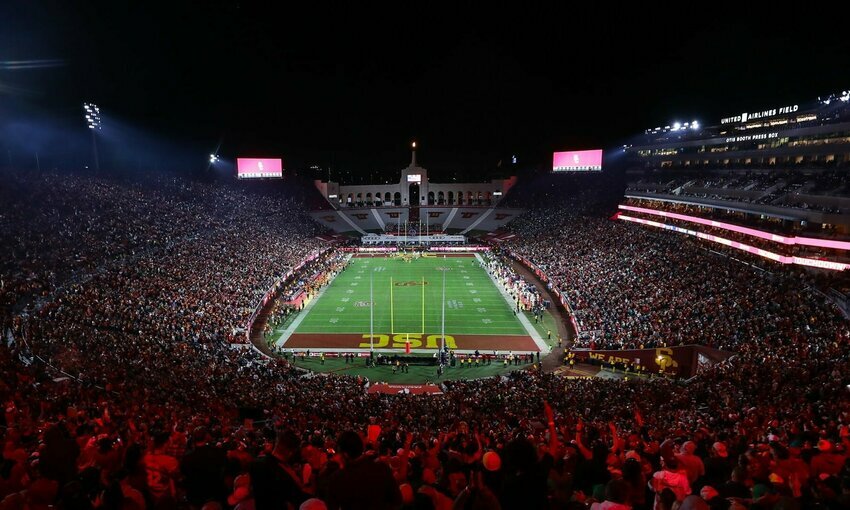 (Credit: USC Athletics)
(Credit: USC Athletics)USC will face Stanford this Saturday in a zero-waste football game, made possible by a partnership with compostable cup company, Better for All.
Fans in attendance will receive pre-game beverages in Better for All’s reusable, compostable cups at the Trojans’ Ultimate Tailgate near the stadium. Last year, in its zero waste game against Arizona State, a 91.3% diversion rate was achieved, and USC hopes to build on this success at this weekend’s competition.
Better for All’s cups are made from PHBH, a material made from fermented plant seed oils, and are the only certified home-compostable PHBH cup in the U.S. market. This means cups may be composted anywhere, not only in composting facilities, making them a great choice for football games and other large events.
"USC is proud to partner with Better for All for this year's Zero Waste Game," said Drew DeHart, vice president and general manager of USC Sports Properties and Playfly Sports. "We see this as a unique opportunity to provide a no-waste, game-day experience that resonates with the values of our students, fan base, and the USC Trojan community. We acknowledge the important role sports venues play in combating waste and climate change, and are proud to use our influence as a platform in the sports community to promote sustainable change."
During the 2022 football season, USC won the Best Fan Engagement sub-category for the Pac-12 Zero Waste Challenge, a conference-wide competition now in its fourth year.
The upcoming zero waste game marks one of many efforts developed towards promoting sustainable practices in sports. As an industry, sports have always received worldwide attention, and in recent years, efforts have been made to use sports as a platform for promoting sustainability.
For example, The Climate Pledge Arena, home of the NHL’s Seattle Kraken, currently aims to be the first certified zero-carbon arena in the world and will be 100% free of single-use plastics by 2024, among other sustainability efforts. Mercedez-Benz Stadium in Atlanta also recently became the first stadium in the world to earn the Total Resource Use and Efficiency Platinum Certification for zero waste.
More broadly, the Green Sports Alliance, founded in 2010, works with teams and sports organizations, including the Pac 12, to help bolster their sustainability practices. The organization has also released the Collegiate Zero Waste Playbook, providing guidance on waste diversion, water management, and pollution, to name a few, for U.S. collegiate athletics.
As sustainability practices become increasingly relevant for investors and corporations worldwide, sports organizations are being called to prioritize ESG, both to help meet global climate goals and as a business opportunity.